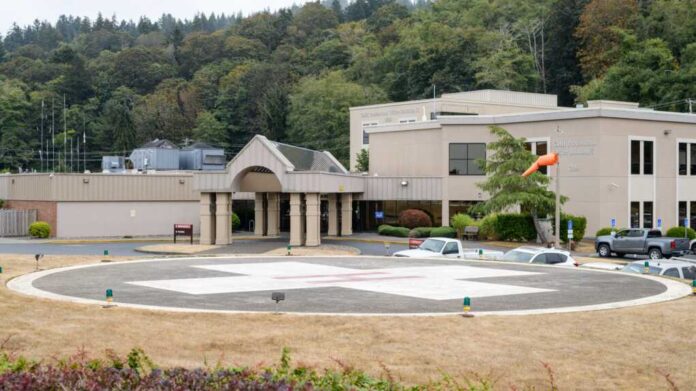
In a puzzling twist, federal funding to tsunami-proof an Oregon hospital is frozen, leaving a community at risk.
Story Overview
- Federal funding for Columbia Memorial Hospital’s seismic upgrades was canceled.
- The hospital is located in a high-risk seismic zone, heightening community concerns.
- The Trump administration’s funding decision has led to legal challenges.
- Community leaders and representatives continue to lobby for restoration of the funds.
The Funding Freeze
The Trump administration canceled a significant federal grant intended for Columbia Memorial Hospital in Astoria, Oregon, a facility located in a region highly vulnerable to earthquakes and tsunamis due to the Cascadia subduction zone. This grant, part of FEMA’s Building Resilient Infrastructure and Communities (BRIC) program, was crucial for constructing a vertical evacuation zone to protect both patients and the broader community. The $14 million funding cancellation has left the hospital in a state of uncertainty, with the legal status of these funds unresolved.
This is JUST PLAIN WRONG. The Trump Administration is withholding funding to protect Astoria from natural disasters.
Denying Columbia Memorial Hospital funding to keep their building safe puts people in danger. I’m fighting to restore this funding.https://t.co/8vjMTdaWML
— Senator Jeff Merkley (@SenJeffMerkley) October 25, 2025
Background and Risk Factors
Columbia Memorial Hospital was built decades ago, long before modern seismic standards were established. As awareness of seismic risks increased, the hospital took proactive steps to address its vulnerabilities. State experts had warned of the need for upgrades to withstand potential earthquakes and tsunamis. Efforts included raising funds and beginning construction to reinforce the building’s structure. The Pacific Northwest, particularly the Cascadia fault area, is known for its seismic activity, and the hospital’s location places it at significant risk.
Community and Political Responses
Congresswoman Suzanne Bonamici, representing the affected district, has been vocal in her advocacy for the restoration of the funds. She has expressed frustration over the stalled funding, emphasizing the potential risks to community safety. Local officials and hospital leadership are also actively seeking solutions, relying on advocacy and legal action to resolve the funding impasse. The Trump administration’s decision underscores the complex power dynamics at play, where executive authority over federal funding decisions can have profound local impacts.
Long-term Implications
The short-term implications of the funding freeze include immediate risks to the hospital’s ability to complete critical safety upgrades. The long-term consequences could be far more severe, with potential loss of life and infrastructure in the event of a major earthquake or tsunami. Public trust in federal disaster preparedness programs may erode if such funding uncertainties continue. Economically, delays or cancellations of construction projects could lead to increased future disaster recovery costs. Socially, the community faces heightened anxiety and a decreased sense of security.
As the legal battles continue, the story of Columbia Memorial Hospital serves as a reminder of the critical importance of timely infrastructure upgrades in high-risk zones.
Sources:
NPR reporting by Katia Riddle
Alabama Public Radio summary
Legal and policy analysis from WFSU/NPR


















